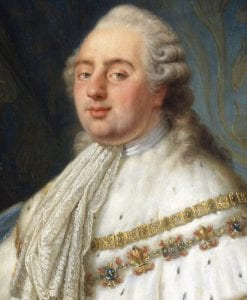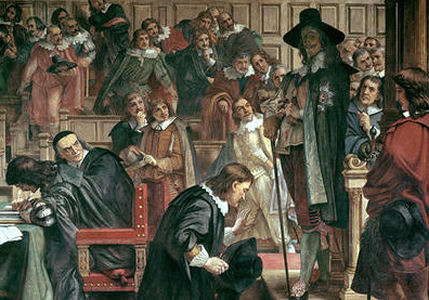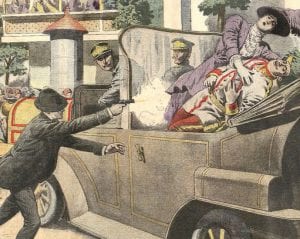What is causation in history? When historians talk about causation they are trying to find out why something happened when it did.
It could be argued that the cause of an event is everything that has gone before, but that is not particularly helpful. In reality there are always more specific causes to be examined, some of which are not immediately obvious. Historians will generally group causes into long term causes, short term causes and a trigger event.
Causation in History – Long Term Causes

Long term causes are things that happened years, decades or centuries ago that contribute towards a new event.
The weak leadership of King Louis XVI of France is considered to be a long term cause of the French Revolution of 1789.
When looking at causation, long term causes are often the most difficult to find. This is because they can go a long way back and are not always obvious.
Long term causes may be subdivided into categories to help to explain their relevance to the new event:
Social causes include things to do with people, families, class and housing
Economic causes include things to do with money, trade, business and employment
Political causes include decisions and directives made by kings, queens and political leaders
Military causes include things to do with the army, weapons and armed conflict
Long term causes are never the only cause of an event.
Causation in History – Short term Causes

Short term causes are things that happened more recently, hours, weeks or months ago, that contribute towards a new event. An examination of history prior to the new event will help to discover short term causes.
King Charles I’s attempt to arrest five MPs in the House of Commons in January 1642, was a short term cause of the English Civil War which began in August 1642.
Short term causes may have more bearing on the new event because they are more recent and fresh in people’s minds.
Causation in History – Trigger Event

A trigger event is the final straw, it is something that means a situation can no longer be overlooked and action must follow.
The assassination of Franz Ferdinand, Archduke of Austria, in June 1914 was the trigger event for the outbreak of World War One.
A trigger event is usually obvious, but it must be remembered that it is not the sole cause. Generally, a situation has been made progressively worse by long term and short term causes. The trigger event is then the spark that finally makes something else happen.
Consequences
There are almost always consequences to historical events. These are the results of the event or action that was caused by long and short term causes and a trigger event.
Consequences are sometimes resolutions to a situation such as a peace treaty or agreement or they can lead to a change in social, economic or political situations.
It is important to remember that consequences can then become a cause of a future event.
The Treaty of Versailles (1919) was signed at the end of World War One and set out harsh restrictions and financial reparations on Germany. It was hoped that the treaty would stop Germany from starting a war in the future. However, it can be argued that the treaty was so harsh and caused such resentment among the people of Germany that it contributed to the outbreak of World War Two.
Citation Information:
Heather Y Wheeler. (2020 – 2022). Causation in History. Available: https://www.historykeyskills.com/causation-in-history/. Last accessed April 15th, 2025
